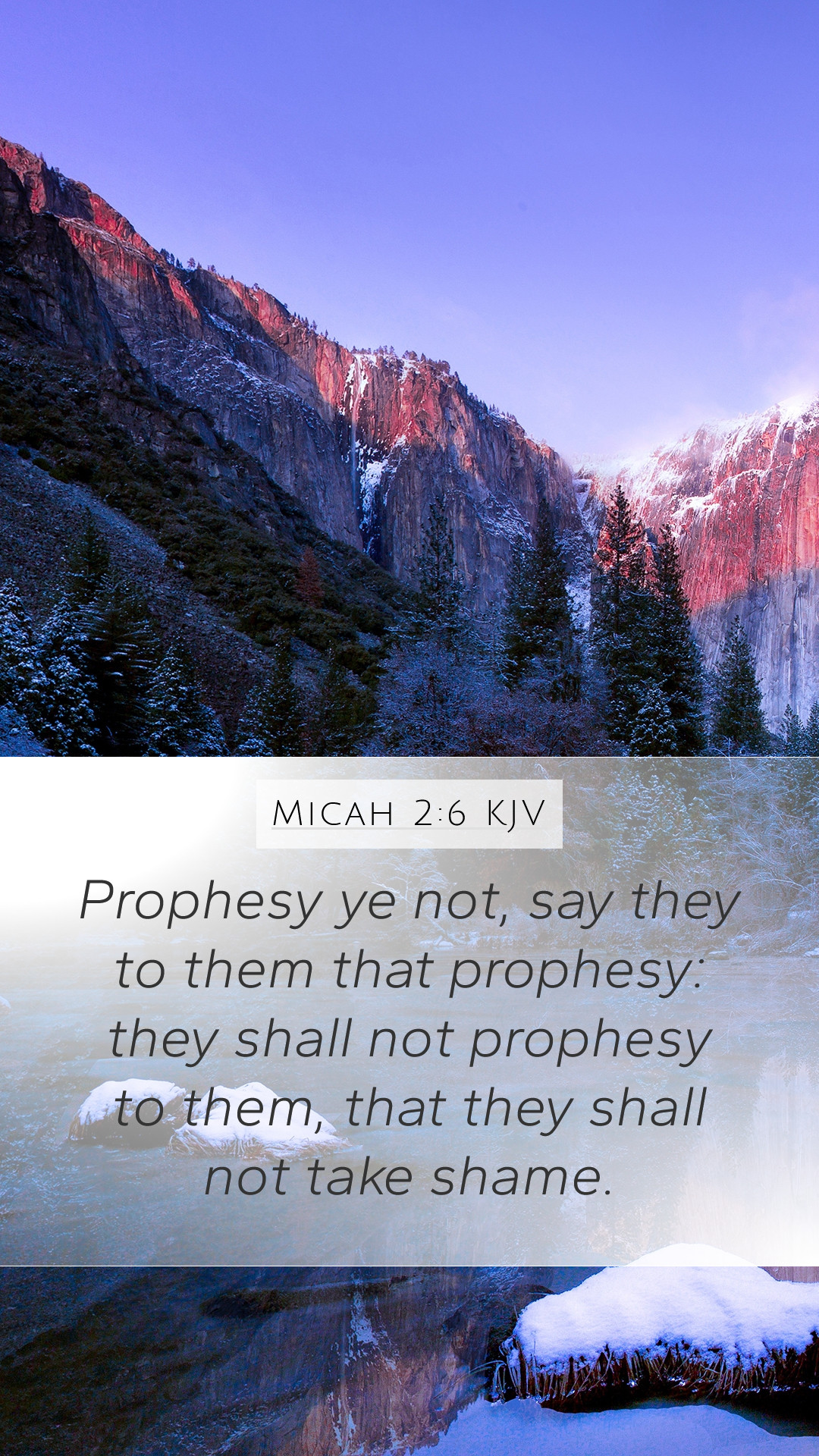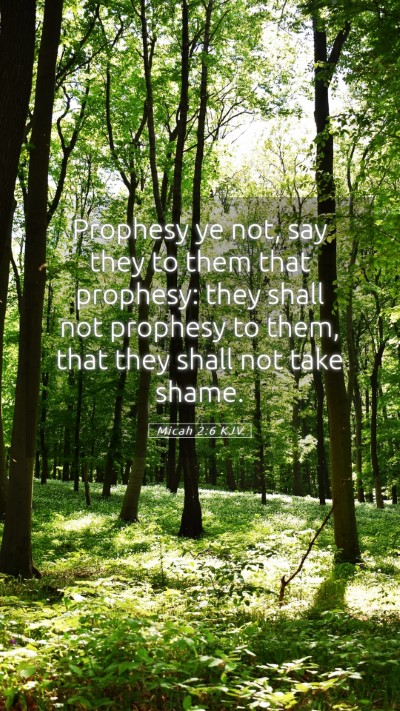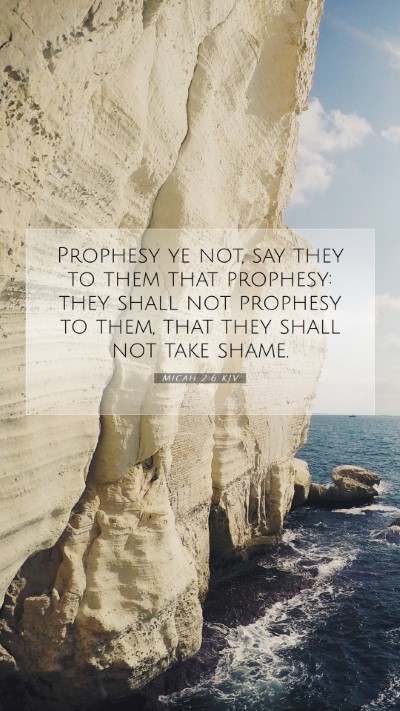Old Testament
Genesis Exodus Leviticus Numbers Deuteronomy Joshua Judges Ruth 1 Samuel 2 Samuel 1 Kings 2 Kings 1 Chronicles 2 Chronicles Ezra Nehemiah Esther Job Psalms Proverbs Ecclesiastes Song of Solomon Isaiah Jeremiah Lamentations Ezekiel Daniel Hosea Joel Amos Obadiah Jonah Micah Nahum Habakkuk Zephaniah Haggai Zechariah MalachiMicah 2:6 Meaning
What is the meaning of Micah 2:6?
Prophesy ye not, say they to them that prophesy: they shall not prophesy to them, that they shall not take shame.
Micah 2:6 Bible Verse Meaning
Bible Verse Meaning: Micah 2:6
In Micah 2:6, the prophet addresses the presumptuousness of those who teach that they should not receive divine judgment. This verse reflects a critical aspect of Bible verse interpretations that reveals the tension between human understanding and divine will.
Overview of Micah 2:6
The verse reads as follows: "Do not preach!" thus they preach, "Do not preach!" to these people. The message of the prophets was not well received by the people of Israel, causing a resistance to the call for righteousness and justice.
Insights from Public Domain Commentaries
-
Matthew Henry's Commentary
Henry indicates that the people were advised to silence the prophets who spoke of judgment. This shows the reluctance of the people to hear the truth and heed divine warnings. This reflects a common theme in Bible study insights where there is often resistance to truth in times of moral decline.
-
Albert Barnes' Notes on the Bible
Barnes points out that the term "do not preach" signifies an unwillingness to accept the truth from the Lord. It indicates a desperate attempt to avoid conviction and accountability. This behavior is seen across various Bible study groups where the challenge of conviction is met with denial or suppression.
-
Adam Clarke's Commentary
Clarke emphasizes that the phrase denotes a condemnation of the false prophets and a societal inclination to reject divine counsel. In Bible verse commentary, it illustrates a broader struggle within society to align with God’s word, hinting at the intricate relationship between divine instruction and human free will.
Significance in Historical Context
Micah's time was marked by social injustice, corruption, and idolatry. The refusal to hear God's message was indicative of a wider spiritual decline. Understanding this context is crucial for historical context of Bible verses especially for believers today as it sheds light on the ongoing relevance of Scripture.
Biblical Exegesis and Application
The verse serves as a warning against complacency and resistance to God's will. Those interpreting this passage must consider contemporary implications, such as how society today often ignores moral truths in favor of convenience or popular opinion. This leads to a deeper understanding of applying Bible verses to daily life.
Related Bible Cross-References
- Isaiah 30:10 - Addressing rebellious people who reject God's word.
- Jeremiah 6:14 - Prophets misleading the people with false assurances.
- Ezekiel 13:10 - Condemnation of false prophets who provide safety where there is none.
In-depth Study and Discussion
For those seeking to understand difficult passages, such as Micah 2:6, it is essential to engage in thorough Bible study lessons, use Bible study tools, and participate in discussions that challenge the assumptions about divine messages. This engagement fosters a platform for examining the meaning of parables in the Bible and the significance of teachings found in both Old Testament prophecy interpretations and New Testament epistle explanations.
Conclusion
Micah 2:6 serves as a profound reminder of the human tendency to resist truth, a theme that runs deeply throughout the Scriptures. Embracing the call to learn from this verse enhances our Bible verse understanding and deepens our relationship with divine teachings. By actively engaging with Scripture and applying its messages, believers invite transformational insights into their lives.


